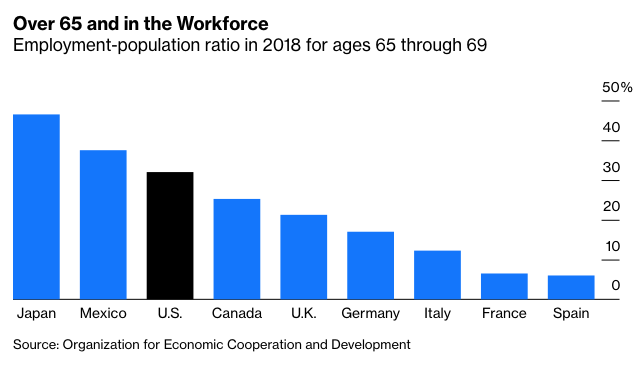In countries where old-style pensions still prevail, 65-plussers are much less likely to have jobs than in the U.S.
Data from the International Labor Organization also indicate that the U.S. has a much higher occupational fatality rate than most other affluent countries, but national standards for reporting and calculating these rates seem to vary so much that I suspect the numbers aren’t really comparable. So no chart of that! But it does seem clear that if we paid people to leave their jobs at 65, there would be fewer occupational fatalities in this country.
This would also, of course, be very expensive, and the funding shortfalls that loom in some of those countries with old-style pensions dwarf what is in store for Social Security (which is basically an old-style pension, too, but is relatively small and doesn’t require that you retire to receive it). What’s more, there’s a growing body of evidence indicating that working past 65 actually prolongs people’s lives. That is, you may be more likely to die on the job, but you’re less likely to die, period. Which seems like an OK trade-off.
This article was provided by Bloomberg News.








